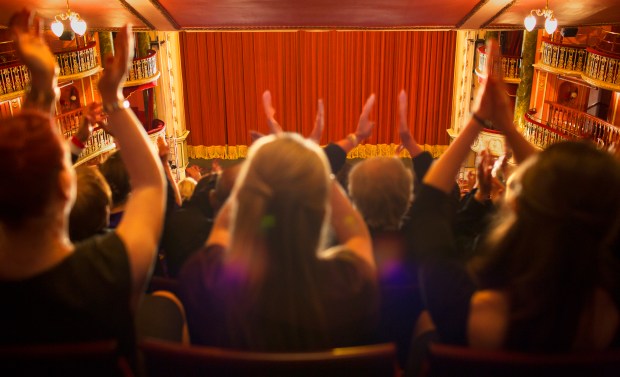Politics
Opera House Issues Trigger Warnings for Classic Production

The English National Opera (ENO) has introduced trigger warnings for its production of Carmen, a classic opera by Georges Bizet that first premiered in 1875. The warnings aim to alert audiences to potentially distressing content, including nudity, loud screams, and depictions of violence, which some may find unsettling.
Visitors to the London venue are informed that the production contains “sudden loud screams,” as well as portrayals of domestic violence, sexual assault, murder, and drug use, alongside alcohol consumption and strong language. The ticket information also highlights the inclusion of vaping on stage, adding to the contemporary concerns surrounding the performance.
Critics of the decision have voiced their discontent, suggesting that the warnings dilute the integrity of the art form. Opera enthusiast George Sinclair expressed his frustration in an interview, stating, “Carmen is a formidable and passionate piece of art. It was not written for an audience to be wrapped in cotton wool.” He emphasized that the opera has been successfully performed for over 150 years without such precautions, urging that this trend of caution needs to be reassessed.
The ENO has defended its approach by stating that it has taken measures to protect younger performers in its production set in the 1970s. Theatre-goers, who can spend up to £190 on tickets, are assured that efforts have been made to shield child actors from inappropriate content.
Despite the ENO’s intentions, some members of the audience and critics feel that this protective stance undermines the emotional depth and historical significance of the opera. Addressing the suitability of the material for child actors, Sinclair remarked, “If child actors are too scared to be on stage and cope with the plot, I suggest they’ll be going into the wrong profession.”
The decision to implement trigger warnings reflects a broader trend in the arts, where sensitivity to audience experiences is increasingly prioritized. While the ENO has not publicly responded to requests for further comment on the matter, the initiative highlights the ongoing debate about balancing artistic expression with audience comfort in contemporary theatre.
As discussions continue, the performance of Carmen remains a focal point for both traditionalists and modern audiences, illustrating the evolving landscape of theatre and public expectations.
-

 Entertainment2 months ago
Entertainment2 months agoIconic 90s TV Show House Hits Market for £1.1 Million
-

 Lifestyle4 months ago
Lifestyle4 months agoMilk Bank Urges Mothers to Donate for Premature Babies’ Health
-

 Sports3 months ago
Sports3 months agoAlessia Russo Signs Long-Term Deal with Arsenal Ahead of WSL Season
-

 Lifestyle4 months ago
Lifestyle4 months agoShoppers Flock to Discounted Neck Pillow on Amazon for Travel Comfort
-

 Politics4 months ago
Politics4 months agoMuseums Body Critiques EHRC Proposals on Gender Facilities
-

 Business4 months ago
Business4 months agoTrump Visits Europe: Business, Politics, or Leisure?
-

 Lifestyle4 months ago
Lifestyle4 months agoJapanese Teen Sorato Shimizu Breaks U18 100m Record in 10 Seconds
-

 Politics4 months ago
Politics4 months agoCouple Shares Inspiring Love Story Defying Height Stereotypes
-

 World4 months ago
World4 months agoAnglian Water Raises Concerns Over Proposed AI Data Centre
-

 Sports4 months ago
Sports4 months agoBournemouth Dominates Everton with 3-0 Victory in Premier League Summer Series
-

 World4 months ago
World4 months agoWreckage of Missing Russian Passenger Plane Discovered in Flames
-

 Lifestyle4 months ago
Lifestyle4 months agoShoppers Rave About Roman’s £42 Midi Dress, Calling It ‘Elegant’









